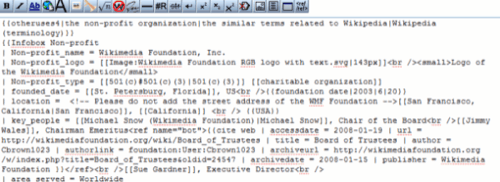Has the cognitive surplus begun to dry up? During the annual Wikimania conference in Haifa, Israel, Wikipedia founder Jimmy Wales told the Associated Press that the organization is “scrambling to simplify what he called ‘convoluted’ editing templates that may be discouraging people from writing and editing Wikipedia’s entries.”

This issue came up in 2009, and Wales shrugged it off, saying that the number of editors was “stable” and quipping that, “You can’t keep growing forever – there are only so many people on the Internet.” But by tweaking and simplifying the editing process, which has worked so far to maintain a quality of content trusted by hundreds of millions of visitors, Wikipedia indicates that something needs to change.
In another effort to drive contributions, Wikimedia has put out an A-to-Z list of new, worldwide educational programs designed to get students to contribute editing and writing. Last month, Wikipedia rolled out an interface for users to rate the quality of Wikipedia pages, as well as to indicate whether they are knowledgeable about the topic. This tool could be used both to compensate for diminishing editorial support by prioritizing low-rated articles, and it could also be used to identify new potential editors.

Frederic Lardinois has pointed out a range of barriers in Wikipedia’s editing process, such as the intimidating Wiki markup language and unending internal politics. He also speculates that Wikipedia might be starting to feel complete, having been around for so long, so fewer users feel their contributions are necessary. Wikipedia has stood as an example that people on the Web can be motivated to work out of sheer inspiration, but that inspiration may have begun to fade. Taylor Buley summed up the problem on Twitter: “Simple case of declining marginal returns?”

















